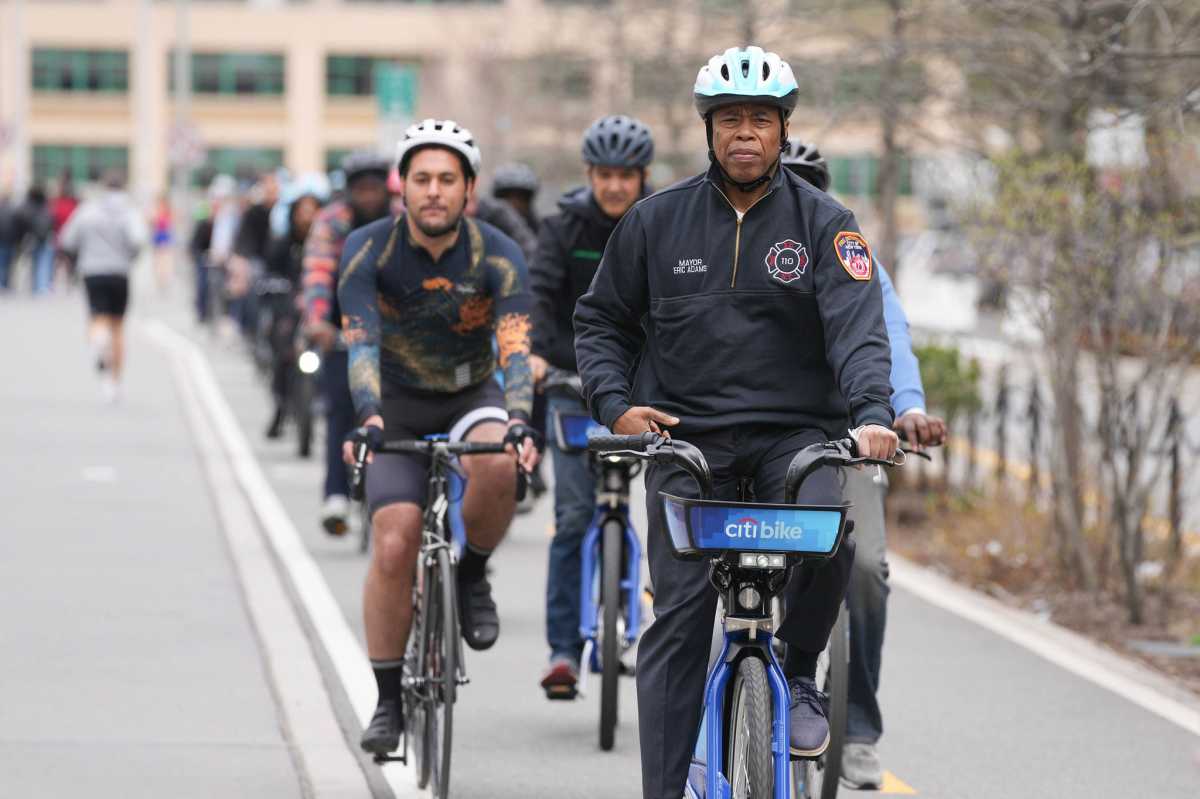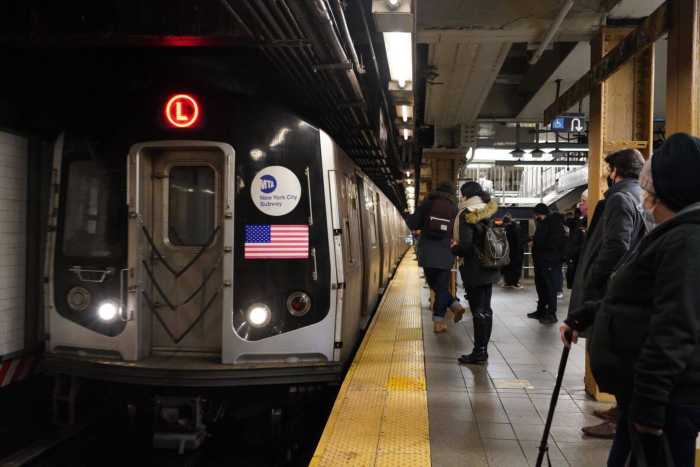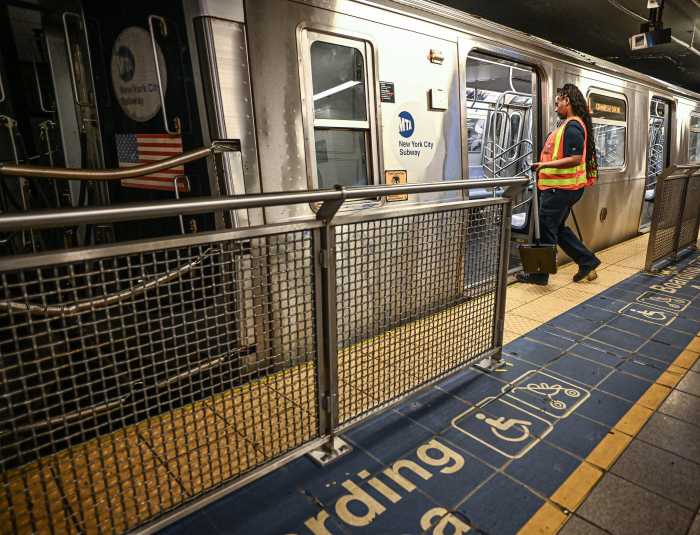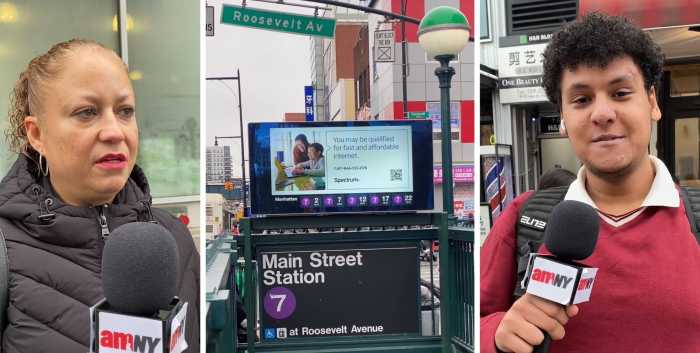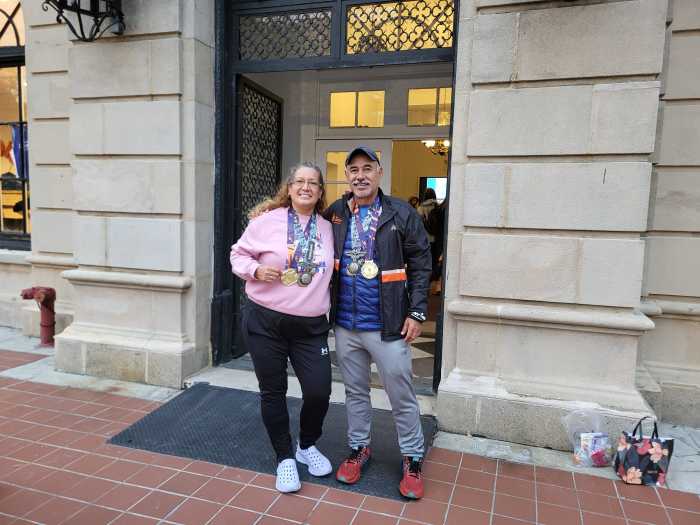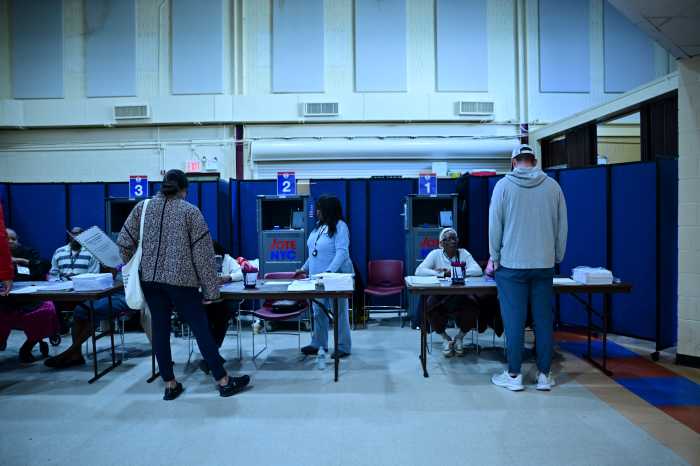Mayor Eric Adams says he would “love” to subsidize Citi Bike and control fares as the bike share system increases in price, but is not ready yet to commit to fulfilling a pledge he made during his campaign for mayor.
Lyft, the rideshare giant which owns and operates Citi Bike, has raised prices on the bike share program twice this year, blaming the hike on the high costs of maintaining its popular electric bike fleet. Unlocking a Citi Bike, either manual or electric, now costs $4.79, and riding an e-bike will tack on an additional 36 cents per minute such that riding for just 15 minutes will see the fare top $10.
Per-minute fees, meanwhile, pile on to traditional bikes after 30 minutes. A day pass costs a whopping $19.
At his weekly press briefing, Hizzoner said he had not been aware of the two separate price hikes this year, which have seen per-minute rates jump 38% since last year. The mayor said the service “should be as inexpensive as possible,” and he would “love” to have the city subsidize the bike share system, though specifically for low-income New Yorkers.
“We would love to find a way to subsidize that for low-income New Yorkers,” Adams said in response to a question from amNewYork Metro. “To number one, encourage more bike usage. It’s a healthy way to get around, it’s a great way to see the city.”
Adams’ Deputy Mayor for Operations, Meera Joshi went a step further, saying that if the city opts to expand bike share further into the outer boroughs — even with 1,700 stations and 27,000 bikes, Citi Bike is still not present in the majority of the city’s landmass — then public subsidy should be “part of that discussion.”
“We are in Phase 3 [of expansion],” said Joshi. “And if we are to extend the program to Phase 4, I think subsidy is something that has to be part of the discussion.”
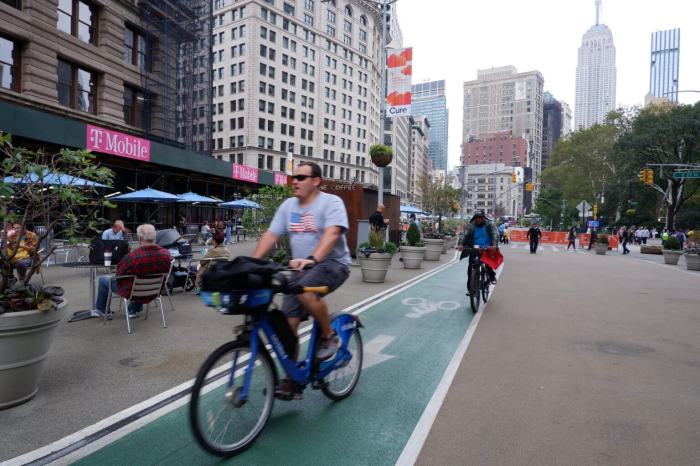
Phase 3 of Citi Bike expansion is ongoing; Lyft has not committed to undertaking Phase 4.
Campaign commitment to city funding
When campaigning for mayor in 2021, Adams said that “committing city funding” to Citi Bike was part of his goal to expand bike share beyond the city’s more affluent areas.
Three years later, the mayor’s failure to deliver on that promise has become one of the major sticking points in a growing gulf between him and cycling advocates, who once saw him as an ally.
The mayor cited $5.6 billion in unexpected costs associated with the migrant crisis as the reason why subsidies have not yet happened.
“A lot of your dreams go up in smoke when you have to pay $5.6 billion out of nowhere,” said Hizzoner. “Can you imagine what we would have been able to do with $5.6 billion in our city? A lot of things we wanted to do, we couldn’t do. We had to make smart choices, as any household would do every day.”
Similarly, Lyft has contended that the large bump in pricing has to do with the high cost of maintaining its highly popular e-bike fleet, which now represents more than 2/3 of rides despite making up only 1/3 of bikes. This leaves the bikes in constant need of both recharging and maintenance, requiring an army of techs to zip around the city to swap out batteries and transport dead ones for charging at a facility in Long Island City.
Citi Bike is pinning hopes on putting e-bike charging infrastructure right at some of its docks, something for which it’s currently undertaking a city pilot.
Still, Citi Bike prices are sky-high compared to bike share systems in comparable cities.
Capital Bike Share cycles in Washington DC unlock for $1 and cost 5 cents per minute for a classic bike or 15 cents per minute for an e-bike; a day pass costs $8. Los Angeles’ Metro Bike Share unlocks for $1.75 with an additional $1.75 fee for every 30 minutes of riding. Boston’s BlueBikes cost $2.95 to take out for 30 minutes, with a fee of a quarter per minute on an e-bike.
Across the pond, London’s Santander Cycles cost $2.19 (USD) to unlock a traditional bike or $4.38 for an e-bike, and have no per-minute fees under 30 minutes. A day pass costs just $3.98 for unlimited rides under 30 minutes.
Vélib bikes in Paris, meanwhile, cost $3.36 (USD) for a single 45-minute trip, $5.59 for a day pass on a traditional bike, and $11.18 for 24 hours on an e-bike.
Unlike Citi Bike, Santander Cycles and Velib are significantly subsidized by the governments of London and Paris.
The fares are starting to become prohibitive for many New Yorkers, according to Eric McClure of the pro-cycling political action committee StreetsPAC.
If the system is to continue expanding, public subsidy to keep the price down may ultimately be a requirement, especially as it expands to less dense parts of the city, he said.
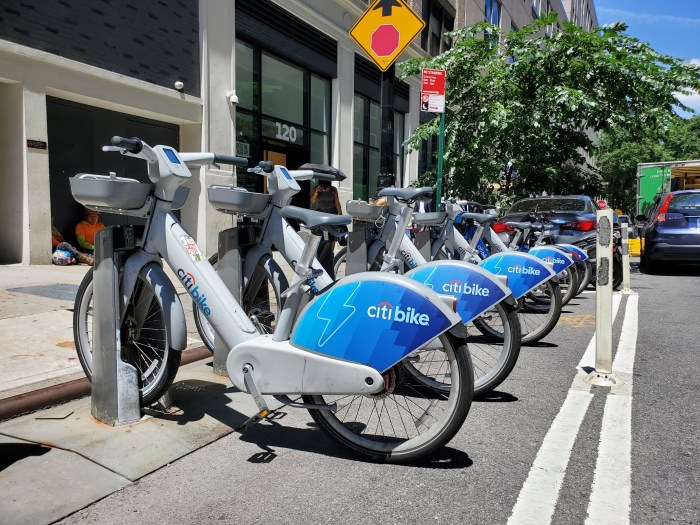
“It’s gotten expensive, certainly outpaced inflation in the way that prices have increased,” said McClure. “But still, it puts the system out of reach for some people.”
“We have long wanted to see this system expanded citywide,” McClure continued. “And I think subsidization is necessary to achieve that. It’s the only form of public transit in NYC that’s not subsidized.”
Reached for comment, a spokesperson for Lyft said the company is eager to discuss potential subsidies should the Phase 4 expansion come to fruition.
Lyft does fund certain discount programs for low-income New Yorkers to use Citi Bike, but those aren’t funded with money from City Hall. Public housing residents and food stamp recipients are eligible for monthly memberships capped at $5 per month, with unlimited 45-minute rides at no extra cost and per-minute fares on e-bikes cut by 2/3.
Lyft’s contract for Citi Bike, reached with New York last November, also includes a cap on per-minute pricing for e-bikes; the company charges per-minute fees on rides near the high end of that cap, which is currently 39 cents per minute for non-members and increases annually, the spokesperson said.
Read More: https://www.amny.com/nyc-transit/



